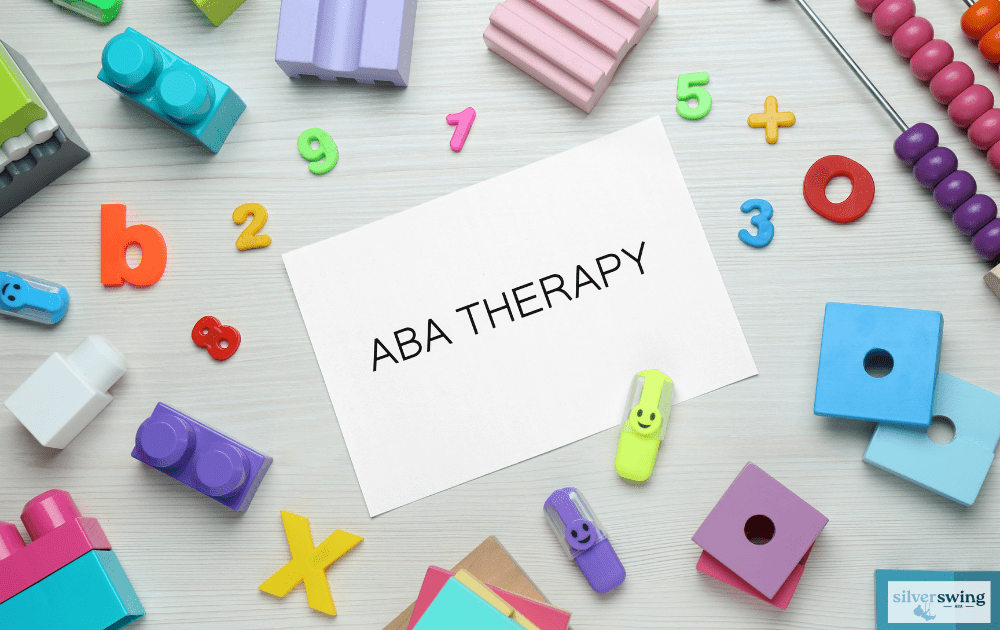The Critical Role of a Certified ABA Therapist in Behavioral Development

Applied Behavior Analysis (ABA) has become a cornerstone in the field of behavioral health, particularly for individuals with autism spectrum disorder (ASD) and other developmental challenges. As the demand for effective, science-backed therapy grows, the need for highly trained professionals has never been greater. This is where the expertise of a certified ABA therapist becomes crucial.
A certified ABA therapist is more than just a practitioner; they are a trained professional who designs, implements, and supervises behavior intervention plans that can dramatically improve the quality of life for individuals of all ages. This article explores what a certified ABA therapist does, the qualifications they must achieve, and the life-changing impact they have on individuals and families.
Understanding the Foundation of ABA Therapy
ABA therapy is a scientifically validated approach that focuses on improving specific behaviors, such as communication, social skills, academic skills, and adaptive learning skills like hygiene and self-care. It is grounded in the principles of behaviorism, which studies how behavior is affected by the environment.
Rather than offering a one-size-fits-all treatment, ABA therapy is highly individualized. This level of customization can only be achieved through a rigorous assessment and ongoing supervision—both of which are responsibilities that fall on the shoulders of a certified ABA therapist.
What Does It Mean to Be a Certified ABA Therapist?
To become a certified ABA therapist, individuals must undergo intensive academic training, hands-on clinical experience, and pass rigorous certification exams. Most often, the term refers to professionals who hold the Board Certified Behavior Analyst (BCBA) credential, issued by the Behavior Analyst Certification Board (BACB).
However, there are multiple roles within the ABA field:
- Board Certified Behavior Analyst (BCBA): Holds a master’s degree or higher in ABA or a related field, completes supervised clinical hours, and passes a national certification exam.
- Board Certified Assistant Behavior Analyst (BCaBA): Holds a bachelor’s degree and provides support under a BCBA’s supervision.
- Registered Behavior Technician (RBT): Paraprofessional who delivers direct therapy under the close supervision of a BCBA or BCaBA.
While all these roles contribute to effective ABA therapy, the certified ABA therapist (typically the BCBA) plays the most critical role in treatment planning, supervision, and program modification.
Educational and Certification Path
To ensure the highest level of care, becoming a certified ABA therapist requires a significant investment of time, effort, and academic study. Here’s a breakdown of the typical pathway:
1. Academic Qualifications
- A master’s degree in ABA, psychology, education, or a related field.
- Coursework must meet the BACB’s Verified Course Sequence (VCS) requirements, covering topics like:
- Principles of behavior
- Ethics and professional conduct
- Experimental design
- Behavior assessment
- Intervention strategies
2. Supervised Fieldwork
Candidates must complete 1,500–2,000 hours of supervised clinical experience. This practice ensures real-world application of ABA principles under the guidance of an experienced BCBA.
3. Certification Examination
Upon completion of coursework and fieldwork, candidates must pass the BCBA exam. This exam assesses their ability to apply behavioral principles in practical, ethical, and data-driven ways.
4. Continuing Education
Even after earning certification, BCBAs must complete ongoing continuing education and maintain ethical practice to retain their credentials.
Core Responsibilities of a Certified ABA Therapist
The role of a certified ABA therapist is both diverse and dynamic. Their responsibilities go far beyond simply observing behavior—they are tasked with designing and managing comprehensive intervention programs that lead to measurable progress.
1. Initial and Ongoing Assessment
Before therapy begins, the therapist conducts a thorough assessment to determine the individual’s strengths, challenges, and behavioral patterns. This includes:
- Standardized assessments
- Direct observation
- Interviews with caregivers
- Data collection and analysis
These assessments are not one-time procedures; they are ongoing and essential for adjusting treatment plans over time.
2. Developing Individualized Treatment Plans
Every client is unique, which means therapy plans must be uniquely crafted. A certified ABA therapist creates customized programs with specific, measurable, and time-bound goals across multiple domains, such as:
- Communication
- Social interaction
- Academic readiness
- Self-help and daily living
- Behavior reduction
3. Supervision of Direct Therapy
While Registered Behavior Technicians (RBTs) often implement the therapy, it is the certified ABA therapist who supervises, provides feedback, and ensures that interventions are carried out correctly and ethically.
4. Progress Monitoring and Data Analysis
ABA relies heavily on data to evaluate effectiveness. Therapists review session notes and behavior tracking data to make informed decisions. If something isn’t working, adjustments are made based on data—not guesswork.
5. Parent and Caregiver Training
Generalization of skills is a major goal in ABA therapy. A certified ABA therapist works closely with parents, caregivers, and teachers to train them on how to reinforce behaviors at home or school.
6. Ethical and Cultural Competency
Certified professionals must adhere to the BACB’s code of ethics. This includes respecting the rights and dignity of clients, maintaining confidentiality, and delivering culturally sensitive services.
Why Certification Matters
In a world where behavioral therapy is in high demand, certification serves as a quality control mechanism. Working with a certified ABA therapist ensures that the individual providing or overseeing care is competent, ethical, and up to date with the latest in behavioral science.
Key Advantages:
- Assurance of Evidence-Based Practices: Certified therapists use interventions that are backed by research and supported by data.
- Consistency and Accountability: Therapists must follow strict guidelines and protocols, making the therapy process transparent and consistent.
- Improved Outcomes: Research shows that ABA programs led by certified professionals result in more substantial and lasting improvements in behavior and skills.
- Insurance Compliance: Most insurance companies require that ABA services be provided or supervised by a certified ABA therapist in order to qualify for reimbursement.
What to Look for in a Certified ABA Therapist
Choosing the right therapist can feel overwhelming, but focusing on a few key areas can simplify the process:
- Credentials and Certification: Confirm their BCBA or equivalent certification through the BACB registry.
- Experience: Look for professionals with experience in your child’s age group or specific behavioral challenges.
- Communication Skills: A good therapist will explain their methods, goals, and progress in ways you understand.
- Team Collaboration: Effective therapists are willing to work with teachers, doctors, and other professionals involved in your child’s life.
- Cultural Sensitivity: They should respect and understand your family’s values, background, and preferences.
Real-World Impact
Families who work with a certified ABA therapist often report significant improvements in their child’s behavior, social interactions, and daily functioning. These gains can extend far beyond the therapy sessions, enhancing quality of life for the entire family.
For example, a child who once struggled with transitions may learn coping strategies that reduce meltdowns during daily routines. Another may gain the communication skills needed to express basic needs, reducing frustration and increasing independence.
These changes are not accidental—they are the result of a structured, thoughtful approach led by professionals with the right qualifications.
Final Thoughts
Behavioral progress doesn’t happen by chance. It takes a strategic, evidence-based approach led by highly trained professionals. That’s why choosing a certified ABA therapist is one of the most important decisions a family can make when seeking support for a child with autism or other behavioral challenges.
Through detailed assessments, personalized intervention plans, and ongoing data analysis, certified therapists provide more than just therapy—they offer hope, structure, and a roadmap to a better future. In a field where effectiveness truly matters, credentials are not just a formality—they are a promise of quality, integrity, and life-changing results.






